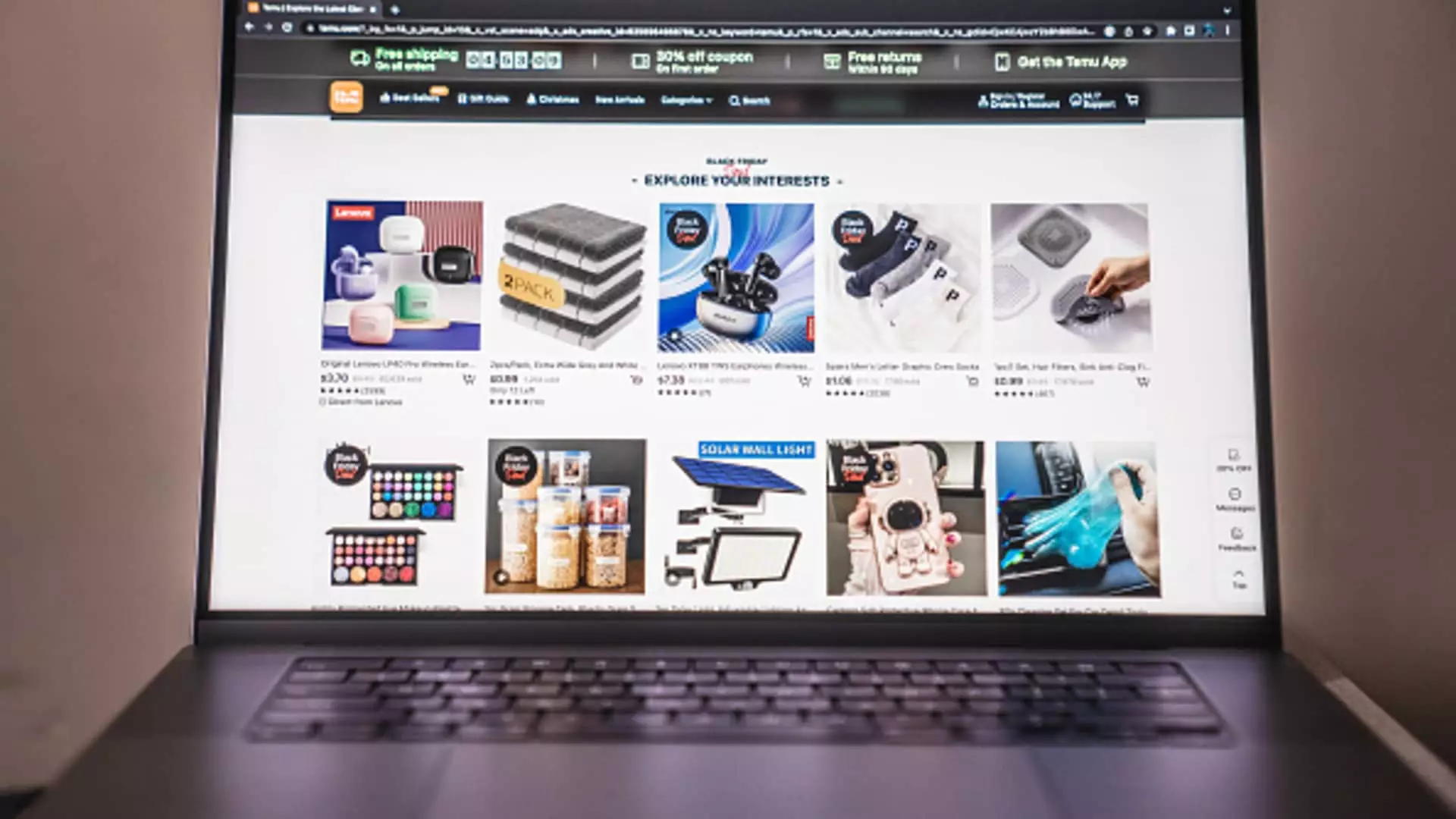In recent times, two commissioners from the U.S. Consumer Product Safety Commission (CPSC) have raised alarms about the safety protocols of foreign e-commerce giants such as Shein and Temu. Their concerns stem from the disturbing reports regarding the availability of hazardous products aimed at vulnerable demographics, notably infants and toddlers. This discussion is more than just a routine evaluation of safety practices; it symbolizes a critical crossroads in consumer protection amid the sprawling landscape of online shopping.
CPSC Commissioners Peter Feldman and Douglas Dziak have formally requested a comprehensive investigation into the operations of these platforms, particularly focusing on their safety compliance procedures and their impact on consumer well-being. “We seek to better understand these firms,” they emphasized in a recent letter, urging an examination of how these companies manage their third-party vendors and their practices when products hit U.S. soil. Such investigations are crucial as consumer habits evolve, and online retail continues to surge.
Delving into Product Compliance
The core of the investigation is motivated by alarming incidents surrounding specific products. For instance, reports indicate that Temu has been selling padded crib bumpers, which have been banned in the United States due to associated suffocation risks. Similarly, Shein has come under fire for marketing children’s hoodies equipped with drawstrings, a feature regulators consider a safety hazard. These examples represent not just isolated issues but signify a broader concern about the efficacy of safety regulations on internationally-sourced products.
The urgency behind this scrutiny is further fueled by the unprecedented growth of both Shein and Temu in the e-commerce sector, primarily due to their aggressive marketing strategies and the lure of affordable products. The competitive landscape raises questions about the implications of rapid growth without stringent regulatory oversight.
In response to these mounting accusations, both Shein and Temu have asserted their commitment to consumer safety. Shein claims to prioritize customer welfare and is reportedly investing substantial resources into fortifying its compliance frameworks. On the other hand, Temu emphasizes the requirement for all sellers on its platform to adhere strictly to existing laws and regulations concerning product safety. The assertions from these companies reflect a standard corporate response—assurances of compliance without a transparent outline of the mechanisms in place to ensure product safety.
The proactive measures claimed by these companies, however, do not negate the necessity for external scrutiny. With platforms having minimal physical presence in the U.S., verifying compliance becomes immensely challenging. This raises the imperative for the CPSC to garner adequate funding and staffing resources to oversee these emerging e-commerce powerhouses effectively.
The Impact of E-commerce on Traditional Retail
The explosive success of companies like Shein and Temu is also reshaping the e-commerce landscape, forcing traditional retail giants to innovate rapidly or risk becoming obsolete. Their marketing strategies—including the eye-catching “Shop Like a Billionaire” campaign by Temu—have garnered considerable attention, even prompting established players like Amazon to reassess their own strategies to compete effectively.
The phenomenon of such fast-growing foreign retailers raises ethical considerations surrounding labor practices and consumer awareness. Shoppers are often enticed by low prices without fully grasping the safety implications of their purchases or the business practices of the manufacturers behind the products they buy.
As the CPSC seeks more robust mechanisms to enforce safety regulations, political conversations surrounding e-commerce practices are gaining traction. There is a clear necessity for lawmakers to scrutinize how loopholes, such as the de minimis exemption—which permits duty-free import of goods valued at less than $800—are exploited by these platforms. This aspect of trade policy needs reevaluation to align safety with consumer protection, ensuring that the pendulum of market growth does not swing too far at the expense of public safety.
The call to investigate online marketplaces like Shein and Temu is not merely about compliance. It is about establishing a framework that safeguards consumers while recognizing the complexities of the modern retail environment. As the narrative unfolds, the need for accountability and stringent safety regulations remains paramount in a rapidly changing economic landscape.

